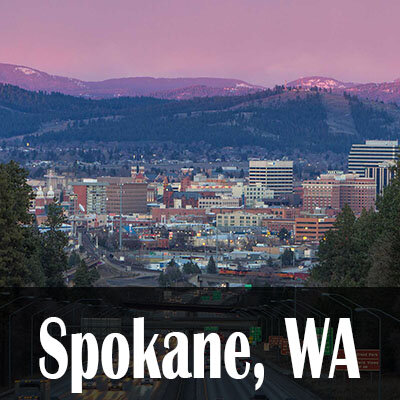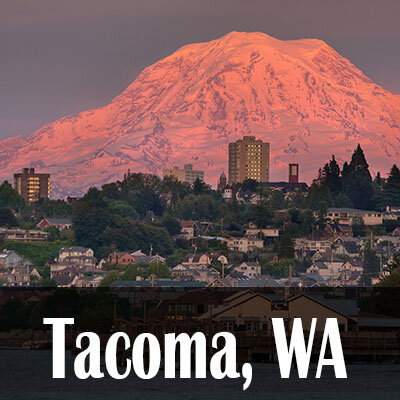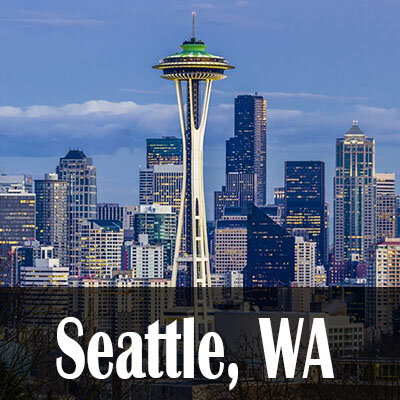When you are leaving your home unoccupied for an extended period of time, the decision of whether to turn off the tap can be difficult. On the one hand, turning it off conserves resources and avoids needless utility bills. At the same time, there could be several important reasons why you should think twice before doing this. If a plumbing emergency were to occur while no one is at home to take care of it right away, serious destruction might arise – like frozen pipes that burst when they thaw in cold weather conditions or flooding from blocked drains during summer months.
Moreover, local regulations regarding vacant homes connected with utility services may require that homeowners keep these running even if nobody is living there – otherwise, hefty fees will incur! 253 Houses offer cash for properties in any condition, so you don’t have to worry about doing costly repairs. We can also help with clearing title issues and back taxes that may be owed. Our closing process is simple and secure, plus we make sure that all paperwork and transactions are done properly. There’s no need to deal with agents or brokers who may take weeks to close a sale – our experienced
Reasons to Shut Off Water Supply in Vacant Homes
You know that when it comes to vacant homes, turning off the water supply is a must. Leaving your home empty for longer periods of time can not only cause pipes or fixtures to freeze and burst but also create an expensive plumbing bill if left unchecked. At 253 Houses, you understand that leaving your property unoccupied can be both stressful and costly; however, shutting off the water is essential in such situations. Taking this precautionary measure will help prevent any damage while you’re away, so when you return, all will still be in working order – financial peace of mind included!
Preventing Water Damage and Costly Repairs
You understand how important it is to prevent expensive repairs and water damage, so you turn to proper maintenance. 253 Houses provide home inspection, maintenance, and repair services for those who are often away from or have recently moved out of their property. Our team can quickly evaluate the plumbing state in an unoccupied house and ensure that all water sources, such as sinks, showers, and toilets, are securely shut off until further notice. We know just how valuable our services are for protecting both your time and money by preventing any potential household issues while a family isn’t residing at their residence!
Conserving Water and Reducing Utility Bills
Conserving water and reducing utility bills should be a priority for you, especially when it comes to an empty house. Turning off the water in an unused home can go a long way toward achieving these goals, as running water is still being consumed even though there isn’t any activity taking place inside that property. Simple steps like fixing leaks or ensuring that all faucets are turned off and not left dripping can make a huge difference when trying to save on both energy use and your monthly bill costs. Additionally, understanding how much each fixture uses in order to conserve consumption around showers or toilet flushes is key to optimizing spending on utilities while also doing one’s part for the environment.
Enhancing Home Security Measures
Enhancing home security measures is an essential practice for you as a homeowner, even when you are away from your property. To maximize protection while your house is empty, there are several steps to take, such as ensuring locks on all windows and doors; installing motion-sensor lighting outside; reinforcing weak points of entry like old or low windows/doors frames; using smart technology such as alarms that can be monitored remotely with mobile devices; investing in outdoor cameras including dummy systems if needed. Even though water should be shut off when no one’s occupying the residence, additional layers of safety measures will help you feel more secure regardless of being absent or present at your home.
253 Houses Buys Houses In These Cities:
How to Properly Turn Off Water in an Unoccupied House
Shutting off the water in an unoccupied house may seem intimidating, but it doesn’t have to be. Taking the necessary steps to securely shut down your home’s plumbing system can help you avoid costly repairs and prevent damage from occurring when nobody is around. To make sure your house’s plumbing system is safely deactivated while vacant, start by locating each appliance or fixture with running water – for instance sinks, toilets, showers, and washing machines – that has a main shut-off valve. Then turn each of those valves counterclockwise until they are completely closed. Afterward, inspect all fixtures again thoroughly to ensure there isn’t any remaining running water before leaving the residence unattended for more than 24 hours. By taking these precautions you’ll get peace of mind knowing that you’ve taken good care of your home even when away!
Locating and Closing the Main Water Valve
You should put on rubber gloves before you start looking for and closing the main water valve in an empty house, as this process may involve potentially hazardous materials such as sediment or rust particles. Once you have located the shutoff valve, turn it clockwise (as if tightening a screw) until it stops moving altogether. If more than one twist is required to fully close off the pipe, count each rotation so that when reopening them, they match perfectly. Finally, check to make sure no further water pressure remains within your system after being closed: this allows for proper maintenance care without worrying about wasting resources unnecessarily.
Draining Pipes and Water-Using Appliances
You know the importance of maintaining an empty house – one of those tasks is to drain all pipes and water-using appliances. Not doing so could lead to damage from buildup in water pressure, such as burst pipes or malfunctioning fixtures. It’s also beneficial for energy efficiency since leaving these items on when not in use wastes electricity and money long-term. To ensure a safe home while vacant, it is essential to drain these items before turning off the main shutoff valve if there will be no activity over 24 hours. Doing this helps prevent issues like mold growth inside walls which can occur due to moisture retention caused by forgotten plumbing systems still running after temporarily or permanently abandoning a building.
Other Articles You Might Enjoy
- Lender Required Repairs: What Are They? [FHA, VA, Conventional]
- Review Top 5 Companies that Buy Houses for Cash -National & Local
- Washington Property Tax Liens
- What Documents Are Needed To Sell Land By Owner In Washington?
- What is a short sale and how does it benefit you in Washington?
Securing Water Heater and Other Equipment
You should make securing water heaters and other equipment in an empty house your top priority. It is easy to forget that while a home may appear abandoned, its contents, such as these, are still valuable items worth protecting from theft or damage. To prevent loss of property, one must ensure the plumbing lines leading into and out of the heater are turned off at the main valve to completely disconnect it from a power source. Additionally, any hoses left attached should also be unplugged for extra caution against breakage due to exposure to extreme temperatures – particularly during winter freezes when pipes can become frozen and cracked without proper insulation around them. Finally, adding security locks on doors with access points will definitely help keep all assets safe while you’re away!
253 Houses Buys Houses In These Cities:
Challenges and Risks of Leaving Water On in Empty Houses
You may face serious risks and challenges if you leave water on in an empty house. Flooding or water damage caused by burst pipes is a common occurrence when homes go unsupervised, which could lead to massive difficulties for 253 Houses’ customers who don’t take the right precautions. Therefore, it is important to make sure that any unattended property doesn’t experience such issues as well as consider long-term effects related to energy efficiency as well other utilities like electricity bills for lights & appliances running all the time, or internet charges from modems left plugged in without anyone present at home. All these can add up quickly! To avoid facing these horrors upon returning home, careful planning and vigilance are recommended – remembering always to turn off the water supply before leaving a residence vacant.
Undetected Leaks and Water Waste
You understand the importance of never leaving an empty house unattended. Unexpected leaks and water waste can occur due to faulty plumbing or appliances, leading to added financial burden as well as strain on natural resources. It is important for you to regularly check interior pipes and fixtures for any signs of leakage so that proactive steps can be taken before it worsens. In addition, turning off the main supply valve might offer extra assurance against further wastage – no matter how small!
Increased Likelihood of Frozen Pipes
When you leave a house empty, one of the biggest concerns is an increased likelihood of frozen pipes. According to 253 Houses, such extreme temperatures can cause permanent damage that could lead to costly repairs and replacements if not monitored closely while nobody’s home. Knowing this threat exists makes it essential for anyone planning on vacating their property for any period of time to ensure all water circulation throughout the structure has been shut off – giving you peace of mind in knowing your residence will stay safe until you return!
Higher Chances of Mold and Mildew Growth
As a responsible homeowner, you must take all the necessary precautions to ensure your home is safe and well-maintained. One of those important steps is making sure water isn’t left running in an empty house – this can lead to higher chances of mold and mildew growth, as stagnant water creates optimal conditions for these organisms to thrive. At 253 Houses, they understand that any kind of moisture introduced into the environment could pose serious health risks if not addressed quickly. You will be provided with essential tips on how best to shut off water supply in vacant homes while away from your residence so you can keep your property clean and dry.
253 Houses Buys Houses In These Cities:
Alternative Solutions for Managing Water Supply in Vacant Properties
You face a tricky challenge in managing water supply in vacant properties, but there are several alternative solutions to explore. Installing smart meters allows for remote monitoring and control of the property’s water usage, preventing unauthorized use or wastefulness during periods of vacancy. Additionally, fitting properties with automated timers connected to their tap systems can allow responsible parties to limit access times when necessary. Of course, these measures are only effective if households keep their information updated – something that requires regular maintenance and education on behalf of all involved. It is important for you as real estate owners and tenants alike to stay informed about how best you can manage water resources in empty homes so as not to make an unnecessary impact on the environment or local community.
Installing Smart Home Devices for Remote Monitoring
You are looking for ways to maximize the security of your home, even when you’re not on-site, and installing smart home devices for remote monitoring is becoming increasingly popular. 253 Houses have a wide range of Smart Home products that make it easy and cost-effective to keep tabs on your property from afar. With motion sensors, window locks, and doorbell cameras – all connected through one app – peace of mind comes at an affordable rate while also reducing energy usage by cleverly controlling the temperatures with ease!
Considering a Home Watch Service or House Sitter
When considering a home watch service or house sitter, you face the dilemma of whether to leave your water on while away. This is an individual decision that must be made for each household; some factors should be taken into account when making this choice. Home watch services provide extra security and offer peace of mind knowing someone is monitoring your property while you are gone – although they come with fees as well as potential repair costs if something goes wrong due to a lack of regular maintenance checks and upkeep. House sitters eliminate these issues by providing direct supervision over any water-related tasks but may create other challenges, such as having strangers entering the residence during times it would otherwise have been unoccupied. Weighing both options before selecting one makes sense for unique circumstances that might be necessary in order to decide what’s best for a particular situation.
Regularly Inspecting and Maintaining Plumbing Systems
You should regularly inspect and maintain your plumbing system to ensure your home is safe, comfortable, and efficient. For empty houses that are sitting idle for long periods of time – such as unoccupied vacation homes or rental properties – you should take one additional step: turning off the water supply completely. You can save money on utility bills this way, but it also cautions against issues like leaky pipes while nobody is around to spot them early before they become major problems. Before hitting that shutoff valve, make sure you consult a professional plumber – leaving the house without water can cause more extensive damage if done incorrectly!




